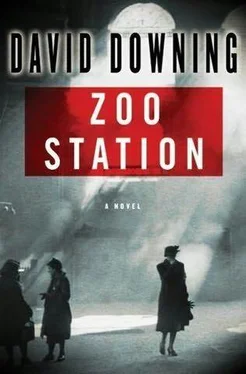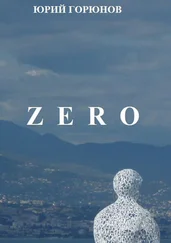David Downing - Zero Station
Здесь есть возможность читать онлайн «David Downing - Zero Station» весь текст электронной книги совершенно бесплатно (целиком полную версию без сокращений). В некоторых случаях можно слушать аудио, скачать через торрент в формате fb2 и присутствует краткое содержание. Жанр: Шпионский детектив, на английском языке. Описание произведения, (предисловие) а так же отзывы посетителей доступны на портале библиотеки ЛибКат.
- Название:Zero Station
- Автор:
- Жанр:
- Год:неизвестен
- ISBN:нет данных
- Рейтинг книги:5 / 5. Голосов: 1
-
Избранное:Добавить в избранное
- Отзывы:
-
Ваша оценка:
- 100
- 1
- 2
- 3
- 4
- 5
Zero Station: краткое содержание, описание и аннотация
Предлагаем к чтению аннотацию, описание, краткое содержание или предисловие (зависит от того, что написал сам автор книги «Zero Station»). Если вы не нашли необходимую информацию о книге — напишите в комментариях, мы постараемся отыскать её.
Zero Station — читать онлайн бесплатно полную книгу (весь текст) целиком
Ниже представлен текст книги, разбитый по страницам. Система сохранения места последней прочитанной страницы, позволяет с удобством читать онлайн бесплатно книгу «Zero Station», без необходимости каждый раз заново искать на чём Вы остановились. Поставьте закладку, и сможете в любой момент перейти на страницу, на которой закончили чтение.
Интервал:
Закладка:
As they left the buffet an international express steamed out across Hardenbergstrasse, rumbling the girders of the bridge and pumping bursts of white smoke toward the stars. Russell found himself wishing, if only for a moment, that he and Effi were two of the silhouettes in the necklace of illuminated windows, headed for another life in Amsterdam or Paris or New York-anywhere, in fact, beyond Hitler’s rancid realm.
It was almost one when they got back to the flat. Their lovemaking that afternoon had been almost frenzied, but now they took it slowly, luxuriously, taking each other to the brink again and again before finally, joyously, tumbling over it together. Wrapped in each other’s arms, Effi went to sleep almost immediately, but Russell’s brain refused to let him be. He had not been angry with the Nazis that morning, he realized. He had been angry with himself. Angry at his own helplessness. Angry that all he could manage was fantasies of escape.
It suddenly occurred to him that his imaginary book of photographs might make a real impact abroad. Especially in America, where the Jewish organizations had some political clout. He could get pictures of old Jewish businesses from press libraries and shoot the rest himself with Zembski’s camera. Getting it out would be a problem, but he’d worry about that-and ensuring his own anonymity-when the time came. And if anyone noticed him taking pictures of burned-out synagogues he could say he was compiling the record of anti-Semitic triumphs he had originally envisaged. He smiled to himself in the dark.
The next morning they walked to their usual cafй in the Tiergarten for milky coffee and rolls. The winter sun was already riding high in the southeastern sky, and as they strolled back along the northern bank of the Landwehrkanal it seemed as if most of Berlin had had the same idea. Effi had arranged to meet her older sister Zarah for lunch, something she often did when Russell was seeing his son. He had never particularly liked Zarah, who had none of Effi’s fitful ability to look beyond herself, and had married an ambitious Nazi civil servant. Soon after Russell met Effi, she had asked his help in arranging an abortion for Zarah in England, which he had done. Zarah had traveled to London, decided at the last moment she couldn’t go through with it, and had eventually given birth to a boy. Much to everyone’s surprise, she had doted on the child from day one. Much to Russell’s annoyance, she blamed him for the fact that she had nearly had an abortion.
After he and Effi parted, Russell caught a 76 tram outside the zoo for Grunewald, and watched the houses grow bigger as it worked its way through Halensee and into Berlin’s prosperous southwestern suburbs. Paul’s school was a five-minute walk from the tram terminus, and just down the road from the large tree-shrouded villa which his stepfather Matthias Gehrts had inherited from his father. Both school and villa backed onto one of the small lakes which dotted the area, and sitting on a low wall besides the school gates, Russell had occasional glimpses of sailboats between buildings. A couple of women arrived on foot to pick up their sons, but his fellow dads all arrived in cars, and stood around discussing the reliability of their mechanics.
The Jungvolk appeared soon after one, buttoning their overcoats over their uniforms as they walked to the gate. Paul half-ran to greet him, a big smile on his face.
“So where shall we go today?” Russell asked.
“The Funkturm.”
“Again?” They had visited Berlin’s radio tower at least half a dozen times in 1938.
“I like it there.”
“Okay. Let’s get a tram then. Do you want me to carry that?” he asked, indicating the large book his son was holding.
“We’ll take turns,” Paul decided.
“What is it?’ Russell asked.
“It’s the yearbook,” Paul said, holding it out.
The Hitler Youth Yearbook, Russell realized, as he skimmed through the pages. There were 500 of them. “So what did you do today?”
“The same as usual to begin with. Roll-call and gymnastics and then the history lesson-that was all about Germania and the Romans and how most history people get it wrong about them. They think the Romans were civilized and the Germans were barbarians, but in fact it was the other way round-the Romans got mixed up with other races and got soft and lazy and forgot how to fight but the Germans stayed German and that made them strong.” They reached the tram stop just as a tram squealed to a halt. “And after the history lesson,” Paul went on, once they were in their seats, “we did some work on the map wall-remember?-we’re doing a whole wall of maps of Germany from the beginning to now. It’s beginning to look really good.” He looked out the window. “There’s a shop down here that sells model soldiers, and they’ve got the new set of dead soldiers. Someone at school brought them in. They’re really real.”
They would be, Russell thought. Death and toys, the German specialties.
“If they’d come out before Christmas, I’d have them now,” Paul said wistfully.
They reached Halensee Station and climbed down the steps to the Ringbahn platform. “And then we had a talk from this old man,” Paul said, as they watched an electric train pull away from the opposite platform and accelerate down the cutting. “Quite old, anyway. He was much more than forty. He came to talk about the last war and what it was like. He said there weren’t many aeroplanes or tanks, and there was lots of hand-to-hand fighting. Is that true?”
“There was some. Depends what he meant by lots.”
“I think he meant it was happening all the time.” Paul looked up at Russell. “I didn’t believe a lot of the things he said. I mean, he said that the best thing a soldier could do was to die for his country. And one of the boys in the back asked him if he was sorry that he hadn’t died, and the man didn’t reply. The boy was told to report to the leader’s room after the talk, and he looked pretty sick when he came out.”
“Did they give him a whacking?”
“No, I think they just shouted at him. He wasn’t trying to be clever-he’s just a bit stupid.”
Their train pulled in, and Paul spent the single stop ride staring out of the window at the skeletal Funkturm rising out of the tangle of railways. Finished in 1926, it looked like a smaller version of the Eiffel Tower, which probably galled the Nazis to no end. “The elevator’s going up,” Paul said, and they watched it climb toward the viewing platform 126 meters above the ground.
Fifteen minutes later they were waiting at the bottom for their own ride. One lift carried them to the restaurant level, 55 meters up, another to the circular walkway with its panoramic view of the city. The viewing platform was crowded, children lining up to use the coin-operated binoculars. Russell and his son worked their way slowly round, gazing out beyond the borders of the city at the forests and lakes to the southwest, the plains to the north and east. The Olympic Stadium loomed close by to the west, and Berlin’s two other high buildings-the office tower of the Borsig locomotive works and the futuristic Shellhaus-both seemed closer than usual in the clear air. As tradition demanded, once Paul got his hands on the binoculars he turned them toward the northern suburb of Gesundbrunnen, where Hertha’s flag was fluttering above the roof of the Plumpe’s solitary grandstand. “Ha! Ho! He! Hertha BSC!” he chanted underneath his breath.
In the restaurant below they both ordered macaroni, ham, and cheese-washed down, in Paul’s case, with a bottle of Coca Cola.
“Would you like to see New York?” Russell asked, following a thread of thought that had begun on the viewing platform.
“Oh yes,” Paul said. “It must be fantastic. The Empire State Building is more than three times as high as this, and it has a viewing platform right near the top.”
Читать дальшеИнтервал:
Закладка:
Похожие книги на «Zero Station»
Представляем Вашему вниманию похожие книги на «Zero Station» списком для выбора. Мы отобрали схожую по названию и смыслу литературу в надежде предоставить читателям больше вариантов отыскать новые, интересные, ещё непрочитанные произведения.
Обсуждение, отзывы о книге «Zero Station» и просто собственные мнения читателей. Оставьте ваши комментарии, напишите, что Вы думаете о произведении, его смысле или главных героях. Укажите что конкретно понравилось, а что нет, и почему Вы так считаете.












